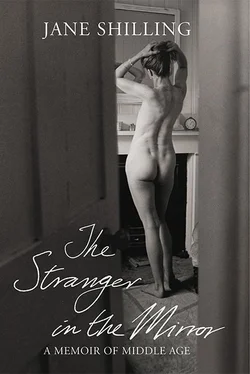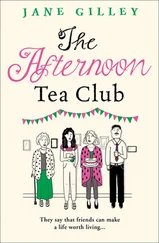From the first day she made me question myself as a mother. I came home from work once to find her offering the baby a choice of yoghurts for his tea: would he like apricot or raspberry? It had never occurred to me that he might have a preference. Yet by offering him this insignificant choice, she gave him a degree of power over his own world that I had been withholding.
Linda’s arrival tore great holes in our sealed world, through which the outside came rushing in bracing blasts of unaccustomed sensation. She took Alexander out – not just to the park on the doorstep, but up to London to see the pelicans in St James’s Park, and to toddler groups, where she met other nannies and made friends. Sometimes I’d arrive home to find my living room filled with unknown young women drinking tea and the carpet swarming with their little charges.
As he grew older, she began to form his tastes as well, steering him away from the Thomas the Tank Engine books which were his first obsession. She took him to Legoland and Chessington World of Adventures, to petting farms and children’s activity centres, to the swimming baths and the London Aquarium. They went to the circus together, to the Blackheath funfair and to McDonald’s.
I minded very much about missing so much of the day-to-day, the solid warp and weft of the fabric of my son’s life. Part of me felt sad and ashamed at having to acknowledge that if I had been able to take charge myself, I wouldn’t have known how to do it half as well as Linda, with her natural authority and apparently effortless energy, inventiveness and sense of fun. Another part felt pure gratitude that Alexander was having the sort of childhood in which ordinary fun, free of improving content, was a feature; yet another part felt vast relief that I didn’t, myself, have to go to Legoland or Chessington, ever, and could stick to what I was good at: reading bedtime stories and baking complicated birthday cakes in the shape of trains and football pitches.
But in my own role as a mother, it was hard not to feel cheated by circumstance. The six months of my maternity leave, though lonely and frightening in some ways, had also been filled with sweetness. I felt transformed as a person – the baby had smashed the defiant shell of egotism inside which I had been sheltering since childhood, and as the spring came and the leaf-buds burst I felt my small, hard, black, cramped soul expanding in sympathy as I learned what unconditional love felt like.
When my son was seven, I gave up my staff job at a newspaper and turned freelance. I was working for a woman who celebrated the masculine rituals of newspaper production: fearsome rows, impossible last-minute changes of plan, eleventh-hour ripping-up of pages to concentrate the minds of her underlings. On my first day in the job I had to telephone the widow of a well-known man who had just hanged himself and request an interview. The widow declined with a gentleness that I did not deserve.
I should have realised then that I wasn’t cut out for this line of work, but the thought of money made me hesitate. My next task was to commission a series of articles on sex from ‘great writers’. I did so, with predictable resistance on the part of the great writers. But when I produced the hard-won results, my editor flicked through them and said indignantly, ‘I can’t publish this! It’s filth !’
I tried to feign insouciance in public and raged in private. But the rift between the Mannerist contortions of the executive hierarchy and the pressing simplicity of my son’s longing for me to be at home (and my longing to stay with him) became so extreme that in the end I couldn’t stretch myself across the gap any longer. With characteristic bad timing I resigned just as my editor was fired and her place taken by her deputy, a calm and diplomatic mother of two small children who contrived to reconcile the maternal and the professional with a grace I couldn’t manage.
I launched into the flighty precariousness of freelance life and began to write from home. I wondered if this might be the moment when the wind changed and Linda left to exercise her calming influence on some other troubled family, but she didn’t seem in any great hurry to be off. She settled in a flat with her boyfriend and had children of her own: a dark-eyed baby daughter, followed a couple of years later by another.
The professional relationship had long since grown into friendship; with the arrival of the little girls it began to blur into something more like an extended family. After a dozen years of shared history it seemed impossible that she should leave – except for the inconvenient fact that my son had grown out of his need for a nanny, though not out of his relationship with the young woman who had done half the work of bringing him up, and with her daughters, who were like his little sisters. But then there came an unexpectedly graceful solution to the problem of how and when to part. A house in Great Yarmouth became available. Linda had the chance to bring up her daughters near their grandparents, by the sea. It was the end of the chapter.
Her parting present to us was an album of photographs chronicling the decade of our life together: in the earliest pictures Alexander was still a baby. Here he was cutting a Henry the Green Engine cake at his fourth birthday party; looking apprehensive on a ride at Legoland; wearing a monster mask at a Star Wars exhibition; pushing Linda’s elder daughter in her buggy, serious and responsible in his first pair of glasses. And here he was in the last picture, long-limbed and gangly, the planes of his face looking suddenly very defined and adult, camping it up to make the baby laugh, with a pink tutu pulled over his ripped jeans and surfer’s T-shirt.
Laid out like this as a chronological narrative, the passage from baby to toddler, toddler to schoolchild, child to boy, boy to almost-adolescent, had a look of seamless coherence, a glossy, almost stylish inevitability which was not at all how it had felt to me as it was happening.
I had apprehended the changes in him more with my body than my mind, charting the transitions in terms of how far I had to bend down to speak to him face to face; the position of his hand when I was holding it; the ease with which I could hoist him on to my hip; the advance of the top of his head, with its pale parting, from knee level to waist height – then breast height, shoulder height. Now his eyes were almost level with mine and our joint perspectives were altered for ever. Quite soon he would overtake me and for the rest of our lives, our vantage points would be reversed: me looking up at him; him looking down on me.
Knowing that this would be the last summer of his childhood, I asked an artist friend to take photographs of him. Every stage of his childhood had always seemed so vivid, so burned into my consciousness that I could not imagine forgetting it, ever. Only the evidence of the photographs revealed what a slipshod cataloguer memory was: places, clothes, toys, outings, entire holidays were deleted from the record. Only the pictures remained to show that they had ever existed. Poised at the ending of the first part of the story, the moment at which the balance of power between us would begin to shift, I wanted a talisman; something to remind me what it had felt like to be the mother of a child.
The pictures are snapshots, taken in the park where Alexander had played in the sandpit as a baby and made his first unaccompanied excursions to play football. She caught him sprawling on the grass, for once not stiff or mugging for the camera but smiling, pensive, chin propped on his hand, at ease with the park, the summer’s day, the old friend taking pictures. He looks younger than his age: his features, the pearly sheen of his skin, the plump hands and slender wrists are all those of a child. Only his long limbs and his expression, in which a faint trace of irony or melancholy, a knowingness is visible, suggest the transition into adulthood has begun.
Читать дальше












